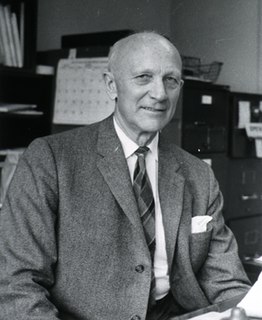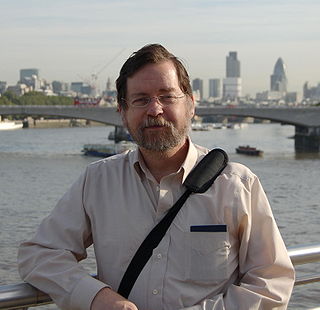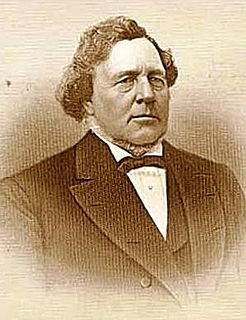A Quote by Havelock Ellis
It is curious how there seems to be an instinctive disgust in Man for his nearest ancestors and relations. If only Darwin could conscientiously have traced man back to the Elephant or the Lion or the Antelope, how much ridicule and prejudice would have been spared to the doctrine of Evolution.
Related Quotes
All too often we say of a man doing a good job that he is indispensable. A flattering canard, as so many disillusioned and retired and fired have discovered when the world seems to keep on turning without them. In business, a man can come nearest to indispensability by being dispensable in his current job. How can a man move up to new responsibilities if he is the only one able to handle his present tasks? It matters not how small or large the job you now have, if you have trained no one to do it as well, you're not available; you've made your promotion difficult if not impossible.
Nothing like one honest look, one honest thought of Christ upon His cross. That tells us how much He has been through, how much He endured, how much He conquered, how much God loved us, who spared not His only begotten Son, but freely gave Him for us. Dare we doubt such a God? Dare we murmur against such a God?
In spite of all these disquieting triumphs in the field of natural science, it's astonishing how little man has learned about himself, and how much there is to learn. How little we know about this brain which made social evolution possible, and of the mind. How little we know of the nature and spirit of man and God. We stand now before this inner frontier of ignorance. If we could pass it, we might well discover the meaning of life and understand man's destiny.
As a guy develops and practices his masculinity, he is accompanied by an invisible male chorus of all the other guys, who hiss orcheer as he attempts to approximate the masculine ideal, who push him to sacrifice more of his humanity for the sake of his masculinity, and who ridicule him when he holds back. The chorus is made up of all the guy's comrades and rivals, his buddies and bosses, his male ancestors and his male cultural heroes--and above all, his father, who may have been a real person in his life, or may have existed only as the myth of the man who got away.
He [Benny Carter] is all that every jazz musician the world over wants to be. He's performed 20,000 nights. How many shoes have been shined? How much mascara put on? Rouge? How many of those impossible bowties have been tied? How many love songs have been sung? How many dances have been danced? How many have passed to the sound of his music? It's been said that a man should not be forced to live up to his art. Benny Carter is one of the rare instances when we wonder whether the great art that a man has created can live up to him.
Plantinga has written a short, 5 page summary of his views on evolution and naturalism, and it’s lucid (for Plantinga) and goes straight to his main points. The workings of the man's mind sit there naked and exposed, and all the stripped gears and misaligned cogs and broken engines of his misperception are there for easy examination. Read it, and you'll wonder how a man so confused could have acquired such a high reputation; you might even think that philosophy has been Sokaled.
I gave examples from my clinical practice of how love was not wholly a thought or feeling. I told of how that very evening there would be some man sitting at a bar in the local village, crying into his beer and sputtering to the bartender how much he loved his wife and children while at the same time he was wasting his family's money and depriving them of his attention. We recounted how this man was thinking love and feeling love--were they not real tears in his eyes?--but he was not in truth behaving with love.
Alfred Russel Wallace, the codiscoverer of the theory of natural selection. Following their twin announcements of the theory in 1858, both Darwin and Wallace struggled like Laocoöns with the serpentine problem of human evolution and its encoiling difficulty of consciousness. But where Darwin clouded the problem with his own naivete, seeing only continuity in evolution, Wallace could not do so.





































